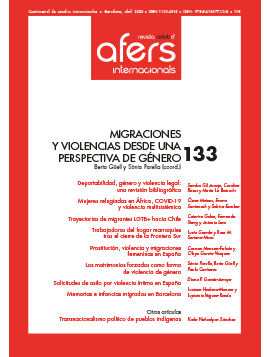Violence and resistance: Moroccan domestic workers after the closure of Spain’s southern border
Keywords:
Spain, Morocco, domestic workers, Melilla-Nador border, cross-border work, structural violence, migrationAbstract
Revista CIDOB d’Afers Internacionals, nº 133, p. 91-112
Quadrimestral (January-April 2023)
ISSN:1133-6595 | E-ISSN:2013-035X
DOI: doi.org/10.24241/rcai.2022.133.1.91
Reception date: 08.11.22 ; Acceptance date: 17.01.23
Before the COVID-19 pandemic, thousands of Moroccan women crossed the border between Melilla and Morocco on a daily basis to work in domestic employment, a consolidated niche sector of cross-border employment for low-skilled working-class women. When the border closed due to COVID-19 lockdowns in 2020, many decided to remain in Melilla. Following the precepts of grounded theory and using biographical interviews, the paper investigates the survival strategies these women deployed following the border closure. An ambivalent process began: on the one hand, their labour conditions worsened, exposing them to worse situations of violence; on the other, they developed strategies of resistance and agency, assuming the role of breadwinner for their families and opting for a process of emancipation through inclusion and training opportunities in the city of Melilla.
>> The full text articles are available in Spanish language













